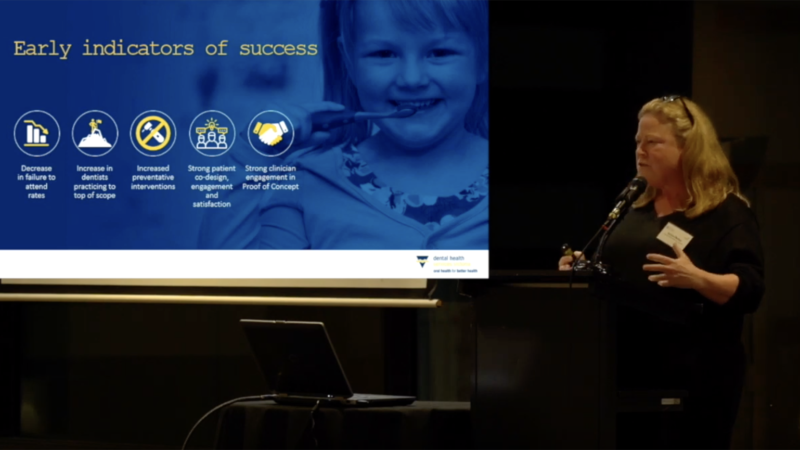CHRONIC KIDNEY DISEASE MANAGEMENT IN PRIMARY CARE HANDBOOK REFRESHED FOR HCPs
Breonny Robson, GM Clinical and Research
Kidney Health Australia
Dr Chris Bollen GP, Oakden Medical Centre &
PEAK Committee Member, Kidney Health Australia
Professor Shilpa Jesudason, Nephrologist
Professor of Medicine, University of Adelaide,
Director of Dialysis, Royal Adelaide Hospital &
PEAK Committee Member, Kidney Health Australia
Chris Picton MP, Minister for Health and Wellbeing
Government of South Australia
Kidney Health Australia’s latest kidney disease guide for primary care practitioners is expected to be pivotal in slowing down the rates of kidney failure, which have doubled in the past 20 years and if left unchecked will grow by a further 42% by 2030, according to the health charity.
With specific reference to new kidney treatments and culturally safe kidney care for First Nations Australians, the 5th edition of Chronic Kidney Disease (CKD) Management in Primary Care handbook, known as the ‘kidney bible’, is a significant step-up in enabling earlier diagnosis of kidney disease for GPs and other front-line healthcare professionals.
The number of Australians treated for kidney failure has doubled in the last two decades, causing widespread treatment shortages, increasing costs, and plunging thousands of Australians into highly invasive and life-altering dialysis. With 1.8 million people currently unaware they have kidney disease, this number will only continue to grow.
Breonny Robson, General Manager, Clinical and Research at Kidney Health Australia, said: “The new edition of the GP handbook helps health professionals working in primary care to identify people at risk of CKD in their practice and proactively diagnose CKD. It outlines key strategies to slow the progression of CKD and reduce cardiovascular risk, including simple colour-coded action plans for different stages of the disease.”
Ms Robson added, “It’s an exciting time in CKD care, with new treatments now available that have been shown to slow the progression of CKD to kidney failure by 15 years or more. The handbook contains significant new information on using these medications in people with CKD so that their health outcomes and quality of life can be extended for many years to come.”
The handbook is endorsed by Australian and New Zealand Society of Nephrology (ANZSN), the Renal Society of Australasia (RSA) and the Australian Primary Healthcare Nurses Association (APNA) and Australian College of Rural and Remote Medicine (ACRRM). It has been approved as an Acceptable Clinical Resource by the Royal Australian College of General Practitioners (RACGP).
South Australian Minister of Health and Wellbeing Chris Picton launched the handbook at an event on World Kidney Day, 14th March, at Royal Adelaide Hospital.
The handbook is available from Kidney Health Australia in hardcopy or free download here https://kidney.org.au/health-professionals/ckd-management-handbook
You Might also like
-
Value-Based Health Care : Dental Health Services Victoria Case Study
Dental Health Services Victoria has implemented a value based health model for oral health, around the patient and the clinician that included both during co-design. This has been possible with a single oral health data system for the state of Victoria and staff keeping in mind the value and outcomes that patients seek.
-
Strategic research investments for health and prosperity
The CEO of Research Australia, Nadia Levin spoke with Australian Health Journal about the following:
– Current medical research and development landscape in Australia
– Investment required to support the Health and Medical Research and Innovation pipeline
– The National Medical Products Industry Plan and its impact on the Australian economy
– The Health and Medical Research WorkforceIn the lead up to the Australian Federal Budget in May 2023, Australian Health Journal reached out to peak health industry bodies to hear about their priorities, either noted in pre-budget submissions lodged with Federal Government in January 2023 or in recent forums such as the Strengthening Medicare Taskforce.
-
New Generative AI and machine learning frontier on unused patient care data
Drawing from GE’s 125-year legacy in healthcare, Amit Yadav, CEO GE HealthCare ANZ is leading efforts to integrate AI into medical imaging devices and optimise workflow efficiencies. He stresses the importance of leveraging the vast amount of untapped healthcare data, with an emphasis on automating manual processes to enhance productivity. Additionally, his focus extends to utilising AI for workflow optimisation and ensuring compliance with local regulations and standards to prioritise safety.



